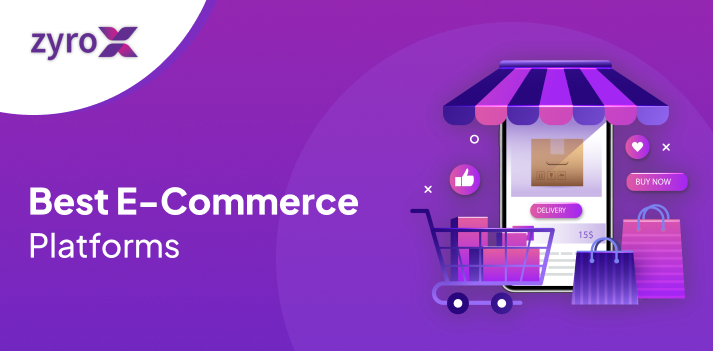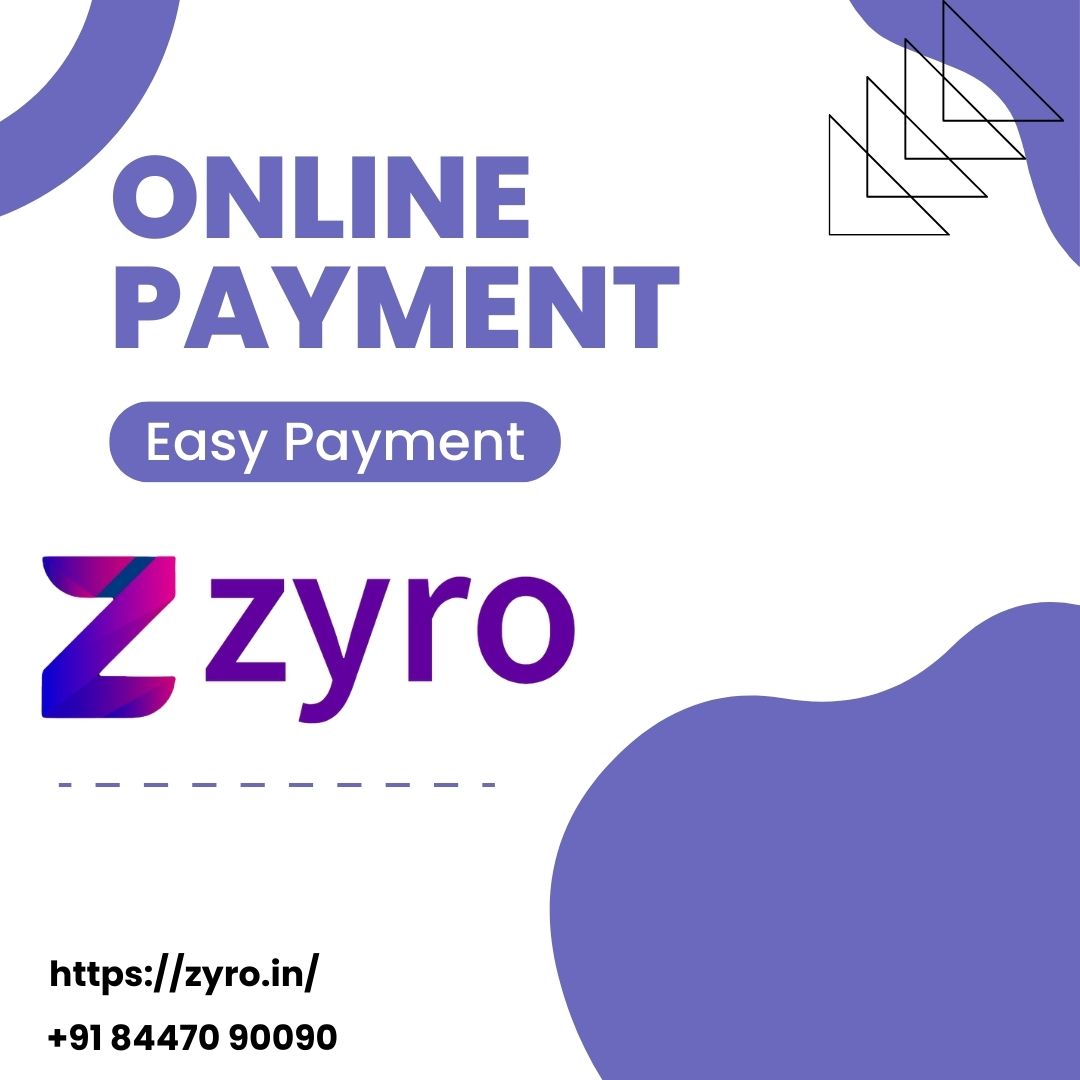Many e-commerce platforms are accessible on the market, making it difficult to choose one. Choosing an e-commerce platform for your online shop requires careful consideration of several criteria. To mention a few: your site is distinct or colourful, the platform employed is adaptable to modifications, and the cost is affordable. No matter how much you anticipate and prepare, your shop will be ruined if you select the incorrect platform.
In this essay, Magesolution will highlight the top eCommerce platforms in 2022 and discuss the criteria that make a platform effective.
Top 10 Most Effective Ecommerce Platforms (online shop) In 2022.
When selecting the finest ecommerce platforms, we decided to consider the following factors: popularity, general reputation, features, customer service, cost, and usability based on preliminary testing and our prior experience with the platforms.

A platform for e-commerce designed to assist all types of enterprises. Zyrox provides everything you need to launch, promote, and manage your internet company. Even new and small businesses may begin with the basic ZyroX plan and upgrade as their activities progress.
Several of today’s fastest-growing businesses rely on this platform. It offers an infrastructure with superior levels of security and resilience. In addition, multichannel integrations and comprehensive management tools. The eCommerce platform offers a variety of tools. This assists you in analysing your online shop. In addition, ZyroX develops features that may help you begin. For example, product personalisation, inventory control, and SEO effectiveness are all readily attainable.
With these technologies, you may create tailored online experiences while boosting your brand’s value and optimising your Return on Investment (ROI) from marketing expenditures. As stated before, ZyroX provides solutions for more than just businesses selling tangible products. This platform helps the ticketing, membership, and service sectors.
You may sell or give as there are no online constraints or limitations on the items or services. ZyroX is a fantastic platform for constructing an online shop, even if you are not entering a specialised sector.
In a few words, ZyroX is an excellent choice if you want a comprehensive solution without having to deal with site construction and hosting concerns. In addition, the platform allows you to modify the code if you choose to do so. The platform satisfies eCommerce needs. The ZyroX QR-generating capability is available. The easy, robust features of the platform may aid in creating a robust shop. The nicest aspect is that you can personalise your consumers’ checkout experience.
ZyroX facilitates speedier customer connections. It is an eCommerce platform that prioritises swiftness. This platform is not restricted. It is always improving to provide you with limitless options and simplify your inquiries. While ZyroX is not the first eCommerce platform, it is a popular option. Moreover, this is ideal if you want a clear, practical, end-to-end procedure. In light of this, we will not discuss the platform’s features. Instead, concentrate on the platform’s distinct selling features (USP).
- Magento
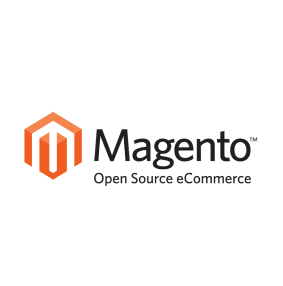
Magento has an extensive back-end interface and a comprehensive array of functions. Therefore, you may extend and modify as you see fit. Magento is available in two versions: open-source and Magento Commerce. The open-source alternative is ideal for users with professional web development skills, making it less suited than other platforms for do-it-yourself website creators. Magento is often used on medium-to-large eCommerce websites that can afford a web specialist or department.
Pros
- Deliver robust and robust features.
- Strong SEO.
- One-click sales.
- Offer a large user base and community.
- Extremely scalable and highly configurable.
- Choose where you would want to host the software.
Cons
- Pricey subject matter.
- Easy to Slow Down.
- Requires Development Skills.
- Virtually little support.
- Ask for sufficient storage space and RAM to function properly.
- Wix

Wix is one of the most user-friendly eCommerce systems, providing simple choices for designing a comprehensive website with serverless computing and simple scripting.However, It is ideal for brand-new online shops because of its inexpensive cost, free themes, and simple setup. Moreover, the platform allows you to create a website in your method. You may choose a template and modify any content you want to include on your website. As your shop expands, you can always add additional performance-enhancing features.
Pros.
- Support an abundance of free premium themes.
- Extremely easy to use and configure.
- On-page support for several requirements.
- Seventy-two free themes are available.
Cons.
- Attempting to combat a negative SEO reputation. Made upgrades; however, testing was abysmal.
- Numerous websites were not encrypted.
- Lacks upselling capabilities and sophisticated automation.
- The template is difficult to modify completely.
- Salesforce Commerce Cloud

Salesforce’s CRM products are well-known. In addition, the firm asserts that the world’s first CRM with Einstein AI can help you develop your connection with customers and expand your business. In addition to order management, commerce customisation with AI, and internationalisation solutions for multinational enterprises, Salesforce Commerce Cloud offers other solutions categorised by company type, requirements, industry, and role.
Pros.
- Managing emails and phone calls and creating reminders for contacts was fantastic.
- Client Data Storage: This is a great approach to keeping track of our prospective clients’ contact information and remarks.
- Rapid and simple deployment and execution.
- Innovation without interruption
Cons.
- There are inconsistencies in the UI.
- Hidden features.
- Greater need to integrate user input.
- Need to do something to make this platform more responsive.
- Sellfy

Sellfy is designed for selling digital files, such as music, artwork, photographs, books, and films. Additionally, it is ideal for organisations that sell digital products and need a full online store solution that is simple to design and operate. However, firms considering utilising Sellfy must also be ready to allocate monthly cash for the membership fee and credit card processing fees. Therefore, this indicates that this may not be the most cost-effective solution for new company owners.
Pros
- Free lifetime plan – All plans include a free 4-day trial with no credit card needed.
- Includes Wix integration.
- Multiple internet-selling alternatives exist.
- There are no transaction costs.
- All priced programmes include email marketing.
Cons
- Weak rankings for SEO traffic.
- Few alternatives exist for payment gateways.
- Must use Zapier for the majority of third-party connections.
- Missing essential marketing tools like 1-click upsells.
- nopCommerce
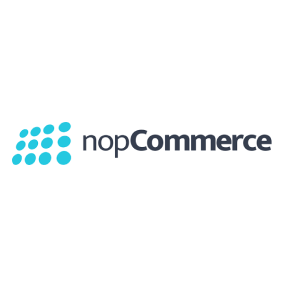
nopCommerce is an open-source eCommerce shopping cart solution that allows you to upload an infinite number of goods and administer many businesses from a single administrative interface. Specifically, it helps you grow revenue with its integrated marketing tools. However, The creators release a new version of their eCommerce software every 6-7 months to stay up with the newest technology and development trends.
Pros
- The shopping cart and associated features.
- Open source: code that is easily adjustable and permits the creation of potent new tools.
- Plugins availability.
- Products management.
Cons
- Could be more free templates available?
- Integration with payment processing systems
- Performance.
- BigCommerce

BigCommerce is the top platform on our list. Its robust product search engine is ideal for bigger retail enterprises. In addition, it is an excellent option for individuals who want to launch an ecommerce business or who already have a brick-and-mortar store but want to extend their operations to include online purchases. Moreover, its offered tools enable achievement in every market segment or business.
Pros
- Adaptable and scalable
- Excels at selling through several channels.
- Excellent SEO Performance.
- Excellent Theme Designs.
- Comprehensive cart abandonment function.
Cons
- Inconsistent speeds throughout many investigations.
- Costs escalate for high-volume retailers.
- Cart abandonment is not part of the entrance strategy.
- No 1-click upsells or sales.
- Oracle CX Commerce
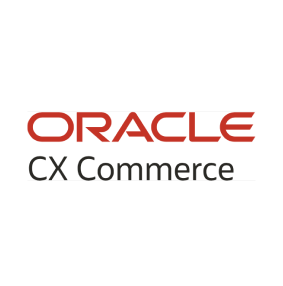
Oracle CX Commerce is a cloud-native, feature-rich, and extendable SaaS commerce solution supplied through the Oracle Cloud. This single platform covers both B2C and B2B models. In addition, it enables you to deliver creative brand experiences tailored to your business’s specific needs.
In addition, Oracle CX Commerce enables you to provide users with an exceptional purchasing experience anytime, from any location. Therefore, It provides unified SaaS solutions that enable you to innovate rapidly, provide seamless, personalised experiences, and drive customer engagement, sales, and loyalty across channels.
Pros
- Their technical support is fantastic.
- Webhook Service is outstanding.
- Integration is intuitive.
- Modern framework Upgrades are provided at no cost to clients.
Cons
- No access to logs for troubleshooting problems.
- Changing one’s skin is not simple.
- The documentation is inadequate.
- Few technical skills are needed.
- Shopify

Shopify is one of the world’s leading eCommerce systems. It is a web application that facilitates the creation of an online shop with various accessible templates. Additionally, you may modify these templates to meet the needs of your online shop or create your store design. In addition to offering a comprehensive CMS, Shopify allows you to control the functionality and look of your online shop. Specifically, Shopify is responsive, allowing users to effortlessly monitor, manage, and adjust their business regardless of the device used to access it.
Pros
- Incredibly rapid load time.
- Extremely simple to set up.
- Numerous accredited partners to assist you.
- One-click sales.
- Supports different sales channels, including social selling.
- Excellent themes with diverse designs.
Cons
- Poor SEO rankings in some cases.
- Unable to modify the checkout procedure.
- Apps may accumulate and become expensive.
- Advanced features need a programmer.
- Squarespace

Squarespace is a user-friendly platform that allows people without technical experience to create stunning websites. Therrefore, This all-in-one platform offers everything you need to operate and create your company website, regardless of your experience level. In addition, Squarespace includes a variety of functionalities and tools for constructing an eCommerce website, as well as hosting for all accessible plans.
Pros
- Simple To Set Up.
- Excellent For Simple Shops.
- Stunning Designs.
- Solid SEO tools.
- Compatible with both ShipStation and ShipBob.
Cons
- No drop shipping.
- No integration with marketing automation.
- No Amazon integration.
- It could be quicker for the cost.
- No app store for additional features and capabilities.
Guidelines for selecting ecommerce systems for an online shop
Therefore, we would like to provide guidance on choosing the most suitable e-commerce platform for your online business.
1. Conduct research on successful internet retailers
When constructing your online shop, you should seek out the CMS platform employed by the pre-established site. Most of the study pertains to two tasks: using a CMS checker and contacting the store’s proprietor. Frequently, it is as easy as running a store’s URL through a CMS checker. However, if the system is unable to identify the CMS, you may always write an email to the site owner to inquire about it. Moreover, There is no specific reason for them to lie about it. If they are willing to answer your inquiries, you may determine why they choose the method they do. The reasons may apply to your circumstance.
The source code may also be seen in the browser to validate the e-commerce platform. This is the way: Using the right-click menu, choose View Source Code.
2. Make a smooth, basic, but powerful user experience a top priority
The consumer experience is dependent on the e-commerce platform your online shop uses. Believe us; no one is likely to examine a website crammed with material, regardless of the site’s potential usefulness. However, clients may get bored while visiting such a simple internet site. Therefore, the ideal alternative is for the e-commerce platform that supports your website to provide the user with a smooth but powerful experience. Furthermore, your online business may grow in its manner by limiting the page’s content to the essentials and optimising its performance during sales. In conclusion, the more balanced a website is, the greater its conversion rates.
3. Your staff must become proficient with the e-commerce platform
The interface that an e-commerce platform may provide for your website is crucial. However, the backend is a worry for your development team as well. therefore, Choosing the simplest techniques for doing routine chores is the ideal approach for ensuring that your website runs efficiently. To be more explicit, the size of your staff determines the amount of customer service you can provide. In addition, updates must be communicated so your staff can stay with your online shop. If your staff becomes overworked, site maintenance will become problematic.Moreover, A system with flaws and mistakes might ultimately lead to declining sales rates.
4. Read motivational blogs, testimonials, and biographies of predecessors
It is usually essential to check evaluations of the e-commerce platform used by an online shop. However, many user experience factors are subjective. For instance, an interface that works well for you may be useless to someone else. When reading evaluations of ecommerce systems, there are a few considerations to bear in mind:
Initially, search for sites with one or more similar goals. And the best way to do research is to peruse reviews, blogs, tales, etc.
Second, it is crucial to seek all sorts of evaluations, including favourable, negative, and neutral ones. Remember that these reviews, postings, and blogs cannot be believed if they include no negative aspects.
5. Specify, optimise, and anticipate the e-commerce platform for the website
Consider the following when selecting an e-commerce platform that is suitable for your store:
Through the selected e-commerce platform, this website’s objective must be transparent and realisable. If an online business continues to beat about the bush, conversion rates will surely decline. However, The website must be completely optimised for consumer satisfaction. It is a fact that mobile devices are dominating many disciplines and methodologies. Consequently, the website must be optimised; otherwise, there would be no returning visitors.
Don’t be narrow-minded. Your e-commerce platform must have clear, specific goals for the future. Ensure that the platform can develop with your organisation without draining your finances.
6. Trial and error is the best way to gain knowledge
The consequences of an e-commerce platform may vary. Therefore you should test the selected platform utilising any free trials it may give. However, This is because e-commerce platform companies generally provide free 30-day samples of their premium services. Nonetheless, you should examine how your decision may impact your firm in the next years. Moreover, Does this not warrant a month of testing? By the finish of this article, you will likely be confidently aware of the ecommerce platform you want to use. In summary, you should consider solutions whether or not issues arise. Additionally, learning from blunders and mistakes is a viable option.
While selecting the finest ecommerce platform for your online business is essential, there are some platforms that we favour. Magento is the e-commerce platform we want to suggest. This e-commerce platform offers several advantages, including the following:
First, it’s gratis (for the Community edition)
You have total control over the design and development of an open-source platform.
The core code is continually updated so that your website may always stay up with emerging trends.
Lastly, including a bespoke design or a downloadable skin is simple.
The only disadvantage Magento may meet is that the cost and utilisation for hosting is quite a problem due to its unique design that increases hosting costs and makes it difficult to modify PHP modules. Therefore, As a Magento user, you may regularly use the Internet for assistance. However, this e-commerce site is universally regarded as a must-try. This e-commerce platform is ideally suited for business professionals or seasoned CEOs, but novices may also test and learn from it.
Final Words
Following these steps will simplify the “platform selection” portion of optimising your e-commerce website. Since you understand your company concept better than anyone else, comparing options based on their supplied characteristics is simpler for you. However, remember that it depends on your company’s needs, future views, technological expertise, and interconnections.
In addition, if you’ve always wanted to test the waters of ecommerce, check out our Ecommerce Development Services. No matter your company requirements, we will give you the most effective solution for every service we provide, from ecommerce strategy consultation to website building services. Let’s consult our specialists for assistance in creating an eCommerce website. Whether a fast repair or an omnichannel initiative, we have all the components necessary to construct a solid eCommerce website.

